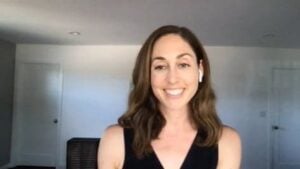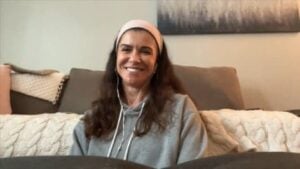How Amanda reclaimed her life from insomnia and abandoned all the rules and rituals that were making things more difficult (#47)
Amanda’s insomnia was triggered by a number of stressors — having a baby, relocating, getting a new job, and dealing with a toxic parent.
She tried several sleep aids and implemented a number of sleep rules and rituals but found no real relief until she explored a different approach.
She started to acknowledge and accept her thoughts and feelings instead of trying to control them. She started to get more comfortable with nighttime wakefulness. And, she started to focus on the good things in her life and doing things that mattered to her.
As a result, she was able to move away from chasing after sleep and successfully reclaimed her life from insomnia.










